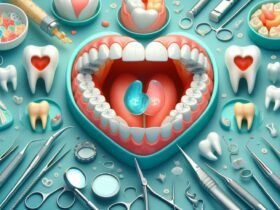Table of Contents
Pork chops are a tasty and popular choice for many meals. Whether you grill, bake, or pan-fry them, they always bring a delicious flavor to the table. But beyond their taste, it’s important to know the nutrition information pork chop offers. By understanding the nutrition in pork chops, you can make better choices for your diet and ensure you’re getting the nutrients your body needs. This article will explore the key nutritional facts about pork chops, including their protein, vitamins, minerals, fat, and more.
Key Takeaways
Protein Content in Pork Chops

Importance of Protein
Protein is essential for healthy cell functioning, growth, and development. If you don’t get enough protein, you might struggle with building muscle, regulating your mood, and fighting off illness. Pork chops are a great source of protein, making them a valuable addition to your diet.
Protein Comparison with Other Meats
When comparing pork chops to other meats, they hold their own quite well. A 3-ounce serving of pork chops provides around 22 grams of protein. This is comparable to other protein-rich meats like chicken and beef.
Recommended Daily Intake
The recommended daily intake of protein varies by gender and activity level. On average, men should aim for 56 grams of protein per day, while women should target 46 grams. A single serving of pork chops can provide nearly half of the daily protein requirement for women and a significant portion for men.
Including pork chops in your diet can help you meet your daily protein needs while enjoying a delicious meal.
| Serving Size | Protein Content |
|---|---|
| 3 ounces | 22 grams |
| 4 ounces | 23 grams |
With such high protein content, pork chops are an excellent choice for those looking to boost their protein intake.
Essential Vitamins in Pork Chops

Vitamin B12 Benefits
Pork chops are a rich source of vitamin B12, which is crucial for maintaining healthy nerve cells and producing DNA. This vitamin also helps prevent megaloblastic anemia, a condition that makes people tired and weak. Including pork chops in your diet can help ensure you get enough of this essential nutrient.
Role of Vitamin B6
Vitamin B6, found in pork chops, plays a vital role in brain development and function. It helps the body make the hormones serotonin and norepinephrine, which influence mood, and melatonin, which regulates the sleep-wake cycle. Eating pork chops can contribute to your daily intake of this important vitamin.
Niacin and Its Functions
Niacin, also known as vitamin B3, is another important nutrient found in pork chops. It helps convert food into energy and is essential for the health of your skin, nerves, and digestive system. A four-ounce pork chop contains almost half the recommended amount of niacin, making it a great addition to a balanced diet.
Mineral Composition of Pork Chops
Zinc for Immune Health
Pork chops are a rich source of zinc, an essential mineral that plays a crucial role in maintaining a healthy immune system. Zinc helps your body fight off infections and supports wound healing. Including pork chops in your diet can help ensure you get enough of this important nutrient.
Phosphorus for Bone Strength
Phosphorus is another key mineral found in pork chops. It is vital for maintaining strong bones and teeth. A serving of pork chops can contribute significantly to your daily phosphorus intake, helping to keep your skeletal system healthy and robust.
Selenium as an Antioxidant
Pork chops are also packed with selenium, a mineral that acts as an antioxidant. Selenium helps protect your cells from damage caused by free radicals and supports a healthy thyroid function. Consuming pork chops can help you meet your daily selenium needs, promoting overall health and well-being.
Including pork chops in your diet can provide essential minerals like zinc, phosphorus, and selenium, which are vital for various bodily functions. This makes pork chops not just a tasty meal but also a nutritious one.
Fat Content in Pork Chops
Types of Fats Present
Pork chops contain different types of fats, including saturated and unsaturated fats. A four-ounce serving of pork chops typically has around 10 grams of total fat and 3.5 grams of saturated fat. The exact fat content can vary depending on the type of pork chop and how it is trimmed and cooked. For instance, center cut chops are usually lower in fat compared to rib cut chops.
Health Implications of Fat
While pork chops are relatively lean, it’s important to be mindful of the fat content. Saturated fats can raise cholesterol levels, which may increase the risk of heart disease. However, pork chops also contain monounsaturated fats, which are considered heart-healthy. These fats can help lower bad cholesterol levels and contribute to overall heart health.
Trimming and Cooking Tips
To reduce the fat content in pork chops, you can trim away visible fat before cooking. Cooking methods also play a role in the final fat content. Grilling and roasting are healthier options as they require less oil. On the other hand, frying can increase the total fat content due to the use of high-fat butter or oil. If you want a crispy texture without the extra fat, consider using an air fryer.
When it comes to nutrition information pork chop, knowing how to trim and cook your meat can make a significant difference in its fat content.
Carbohydrate and Calorie Content

Low-Carb Benefits
Pork chops are naturally low in carbohydrates, making them a great choice for those following a low-carb or keto diet. This means you can enjoy a satisfying meal without worrying about a spike in blood sugar levels. For people looking for healthy snacks for kindergarteners, pork chops can be a good option when cut into small, manageable pieces.
Caloric Value per Serving
A typical 3-ounce serving of boneless pork loin center cut thick pork chops contains about 120-150 calories. This makes pork chops a lean and calorie-conscious choice for a nutritious meal. Here’s a quick look at the caloric content:
| Serving Size | Calories |
|---|---|
| 3 oz (85 g) | 120-150 |
Impact on Blood Sugar Levels
Since pork chops are low in carbs, they have a minimal impact on blood sugar levels. This makes them a suitable option for individuals managing their blood sugar, such as those with diabetes. Always check the nutritional information on the packaging to ensure there are no added sugars or other ingredients that could affect blood sugar levels.
Including pork chops in your diet can help you maintain a balanced and healthy lifestyle, especially if you’re mindful of your carbohydrate and calorie intake.
Cooking Methods and Nutritional Impact

Grilling and Its Benefits
Grilling pork chops is a great way to keep them healthy. This method lets excess fat drip away, making your meal leaner. Plus, grilling adds a delicious smoky flavor without needing extra oils or fats.
Baking for Health
Baking is another excellent option. It helps retain the moisture and flavor of the pork chops while avoiding unnecessary calories. You can season your chops with herbs and spices to enhance the taste without adding extra fat.
Pan-Frying Considerations
Pan-frying can make pork chops crispy and tasty, but it often requires more oil or butter, which increases the fat content. If you want a crispy texture without the extra fat, consider using an air fryer. This method gives you the crunch you crave while keeping the dish healthier.
Choosing the right cooking method can significantly impact the nutritional value of your pork chops. Opt for grilling or baking to enjoy a delicious and healthy meal.
Health Benefits of Pork Chops
Muscle Growth and Repair
Pork chops are a nutritional protein powerhouse. A 3-ounce serving provides around 22 grams of protein, which is essential for muscle growth and repair. Including pork chops in your diet can help support your body’s recovery, especially after activities like exercise or even the repair of ac joint surgery.
Energy Metabolism
Pork chops are rich in B vitamins, including thiamine, riboflavin, niacin, and vitamin B12. These vitamins play a crucial role in energy metabolism, helping your body convert food into energy. This can be particularly beneficial for maintaining energy levels throughout the day.
Immune System Support
Pork chops are a good source of zinc, which is important for immune health. Zinc helps your body fight off infections and supports overall immune function. Additionally, the selenium found in pork chops acts as an antioxidant, protecting your body from oxidative stress.
Including pork chops in your diet can provide a range of health benefits, from muscle growth to immune support. Their rich nutritional profile makes them a valuable addition to a balanced diet.
Conclusion
In summary, pork chops are not just a tasty meal option but also a nutritious one. They are packed with high-quality protein, essential vitamins, and minerals that support overall health. Whether you prefer them grilled, baked, or pan-fried, pork chops can fit into a balanced diet and provide numerous health benefits. Remember to choose lean cuts and cook them in healthy ways to maximize their nutritional value. By understanding the nutritional facts about pork chops, you can make informed choices that contribute to a healthier lifestyle. So, next time you’re planning a meal, consider adding pork chops to your menu for a delicious and nutritious option.
Frequently Asked Questions
How much protein is in a pork chop?
A 3-ounce serving of pork chop contains about 22 grams of protein. This makes it a good choice for muscle growth and repair.
Are pork chops high in fat?
Pork chops can vary in fat content. Center cut chops and boneless chops are usually leaner, while ribeye chops have more fat. Trimming visible fat can make them even healthier.
What vitamins are found in pork chops?
Pork chops are rich in vitamins like B12, B6, and niacin. These vitamins help with energy production, nerve function, and DNA synthesis.
What minerals are in pork chops?
Pork chops contain essential minerals such as zinc, phosphorus, and selenium. Zinc supports the immune system, phosphorus strengthens bones, and selenium acts as an antioxidant.
What’s the best way to cook pork chops for health?
Grilling, baking, or pan-frying are good methods. These techniques help retain nutrients without adding extra fat. Trimming visible fat before cooking also helps.
Can pork chops be part of a healthy diet?
Yes, pork chops can be part of a balanced diet. They are low in carbs and high in protein, vitamins, and minerals. Just be mindful of portion sizes and cooking methods.













Leave a Review